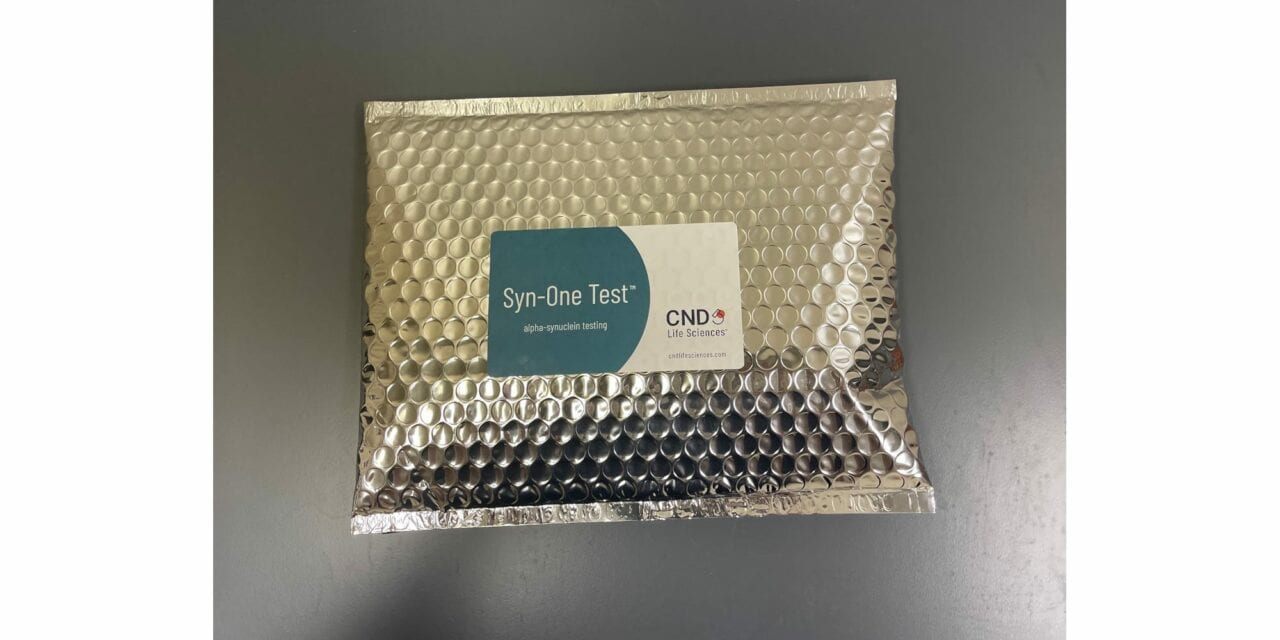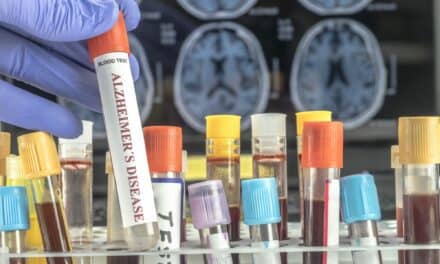Summary: A new study demonstrates the clinical utility of a skin biopsy diagnostic tool in improving care and decision-making for patients with neurodegenerative diseases.
Takeaways
- Transforming Neurodegenerative Disease Diagnosis: The Syn-One Test detects abnormal synuclein through a simple skin biopsy, leading to changes in diagnosis for 66% of patients and treatment modifications for 55%, significantly enhancing clinical decision-making.
- Broad Clinical Impact: The test shows particular utility in diagnosing complex cases of parkinsonism, including those with prominent action tremor (93% diagnostic changes) and cognitive dysfunction (76% diagnostic changes), streamlining referrals to specialized care.
- Accessible and Scalable Testing: With the ability to perform the skin biopsy in office settings, the Syn-One Test offers geographically convenient access, addressing gaps in care caused by a shortage of neurological specialists and enabling earlier intervention.
CND Life Sciences (CND), a medical technology company pioneering the development of cutaneous neurodiagnostic tests and associated biomarker services, announced the publication of a study in the Movement Disorders section of Frontiers in Neurology on Dec. 18, 2024, demonstrating the clinical utility of skin biopsy testing in the diagnosis and evaluation of synucleinopathies.
A Range of Synucleinopathies
These diseases, which include Parkinson’s disease (PD), dementia with Lewy bodies (DLB), and multiple system atrophy (MSA), are often difficult to diagnose accurately leading to delays or errors in medical management.
“For too long, neurologists have needed a simple, accurate test to help diagnose Parkinson’s disease, dementia with Lewy bodies and other related disorders,” says Todd Levine, MD, chief medical officer of CND Life Sciences. “This study shows that by examining nerves in the skin, the Syn-One Test fulfills that need, and contributes to clinical practice and decision making. Importantly, it builds on evidence from our previous study, which validated the accuracy of the Syn-One Test and its use as an essential diagnostic tool for physicians and their patients.”
Study: Skin Biopsy for Neurodegenerative Disease Evaluation
In the current study, researchers performed a retrospective chart review of 97 patients who underwent skin biopsy for the Syn-One Test to detect the abnormal form of synuclein in the evaluation of neurodegenerative disease. Based on Syn-One Test results, 78% of patients had a change in their clinical care with 66% having a change in their diagnosis and 55% having a change in their treatment, regardless if the biopsy result was positive or negative. Changes in diagnosis were most common in patients with parkinsonism and prominent action tremor (93%), patients with postural instability and gait difficulties (90%), and patients with parkinsonism and prominent cognitive dysfunction (76%).
“The impact of these diseases can be life changing, and patients often experience long diagnostic journeys without a clear path forward,” says Jonathan Ross Isaacson, MD, who led the study at the Center of Autonomic and Peripheral Nerve Disorders at Beth Israel Deaconess Medical Center (BIDMC). “Our study suggests that the Syn-One Test has the potential to clarify diagnoses of these diseases and facilitate referrals to non-neurological medical specialties and rehabilitation disciplines such as neurosurgery, orthopedic surgery, physical, occupational and speech therapy.”
Further Reading
Due to a shortage of physicians with sub-specialties in movement, cognitive, and autonomic disorders, most patients facing a diagnosis of neurodegenerative diseases like Parkinson’s are not treated by neurological specialists, as underscored in a recent study of Medicare records. Because the Syn-One Test requires a small punch skin biopsy that can be collected from a patient in an office setting, the clinical utility can be enhanced by offering more geographically convenient access for patients earlier in the disease process.
“In this manuscript, we show how cutaneous detection of alpha-synuclein with a simple skin biopsy, when used in our tertiary care, academic medical center, informs clinical decision making and improves patient care,” says Roy Freeman, MD, professor of Neurology, director of the Center for Autonomic and Peripheral Nerve Disorders at BIDMC, and one of the authors of the study. “This important evidence supports how this test can become a useful diagnostic tool in community settings to evaluate patients with signs and symptoms of these challenging diseases and triage them to more specialized care when needed.”
Photo: CND Life Sciences





